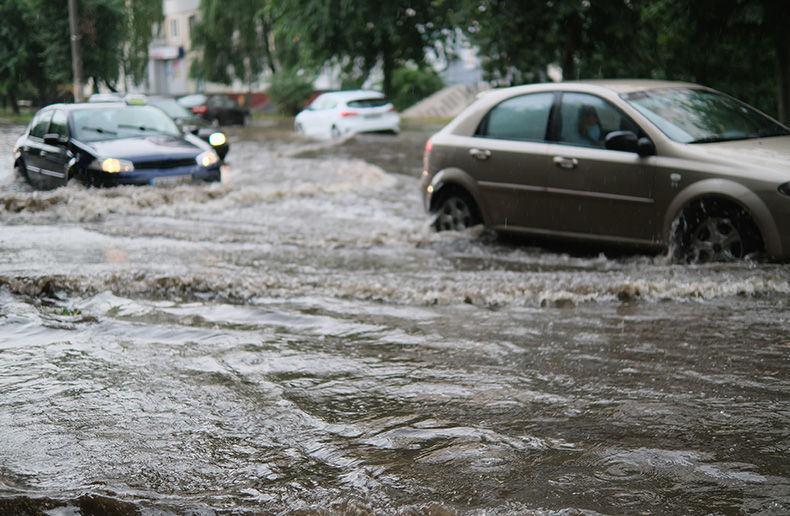In the budget tabled by the federal government on April 16, Minister of Finance Chrystia Freeland reiterated Canada's commitment to assist homeowners struggling to insure their properties against flood risk.
The establishment of a National Flood Insurance Program (NFIP) had already been promised in the federal budget delivered a year ago. The 2024-2025 budget provides more details about the creation of this national program.
In the first chapter of the budget, which focuses on affordable housing, the Minister of Finance links home ownership with the costs of climate change "due to the increasing frequency and severity of natural disasters."
The government plans to offer a flood reinsurance program and a separate insurance subsidy for households at high risk of flooding.
The government is allocating $15 million to the Canada Mortgage and Housing Corporation (CMHC) in 2025-2026 to advance the implementation of a NFIP by 2025. The CMHC will be equipped with a subsidiary that will offer flood reinsurance.
In the budget, the government says it is continuing its efforts with provinces and insurance industry partners "to stand-up a low-cost flood insurance program for high-risk properties within the next twelve months."
Industry reactions
The Insurance Bureau of Canada (IBC) welcomes the government's intention to create the NFIP. According to IBC’s CEO Celyeste Power, "today’s commitment by the federal government will help ensure that over 1.5 million homeowners at high risk of flooding will have access to affordable insurance through the National Flood Insurance Program when it’s launched next year."
However, much needs to be done to enable the implementation of the program in 2025. Power states that "the needed conversations between federal and provincial governments have yet to take place. Without the required federal and provincial funding arrangement, Canadians at the highest risk of flooding will not be adequately protected."
Instead of responding with financial aid in the event of a disaster, the NFIP would be a proactive and cost-effective approach to managing the financial consequences of disasters, according to Power.
The eligibility requirements for the program should discourage further building in floodplains while incenting the protection of those who already live in them, Power states. However, this "critical requirement” is “absent from the just announced federal housing plan to build 3.87 million new homes," she points out.
The Insurance Brokers Association of Canada (IBAC) also welcomes two measures announced in the Freeland budget, including the one regarding flood insurance.
"We encourage the government to fully fund the NFIP in the Fall Economic Statement," stated Peter Braid, IBAC CEO.
"We look forward to working with the government and industry stakeholders to create a program that leverages the existing private-sector framework and the expertise of brokers to ensure a simple and straightforward process for the insurance consumer," he added.
In addition, IBAC is particularly pleased with a statement in Canada’s Consumer-Driven Banking Framework, a document appended to the budget. It specifies that "the existing prohibition on the sharing by banks of customer information for the business of insurance will be maintained."
Advocating for the continuation of this prohibition is part of IBAC's ongoing lobbying efforts with Members of Parliament, Braid told the Insurance Journal during an interview in 2023.
The Financial Consumer Agency of Canada (FCAC) will be mandated with monitoring and enforcing the banking services framework. IBAC underlined the importance of raising consumer awareness about how their data is shared and used, including the risks they face when providing personal information. FCAC will be responsible for developing an awareness campaign on this subject.
Climate
The Meteorological Service of Canada (MSC), founded in 1871, issues rapid weather warnings when the weather is threatening. The government is adding $6.9 million over five years, starting in 2024-2025, to support the MSC's early warning system. This aims to alert the public to extreme weather events, particularly floods and storm surges.
According to the IBC's estimates reported in the budget, the average insured losses due to weather events were $2.3 billion per year between 2011 and 2020, compared to an average of $440 million per year between 1983 and 2000.
Furthermore, the government announced it is doubling the tax credit for some 100,000 individuals who act as volunteer firefighters or participate in search and rescue activities.
The budget notes that "from flooding in Nova Scotia to hurricanes hitting Newfoundland and Labrador, to fires in British Columbia, the Prairies, and the North, these remarkable volunteers have gone beyond the call of duty over the past few years."
The tax credit increases from $3,000 to $6,000 to recognize the important role these individuals play in public safety. Eligible individuals will also be able to recover up to $450 on their tax bill. The estimated cost of the measure over six years, applicable retroactively to 2023-2024, is $105 million.
This announcement comes at a time when, in Charlevoix, the coroner's inquiry into the deaths of two volunteer firefighters who lost their lives in Saint-Urbain on May 1, 2023, is taking place. The overflow of bodies of water in the Gouffre River basin caused severe damage in the region, particularly in Baie-Saint-Paul.
Auto theft
Still in the same chapter of the budget titled Safer, Healthier Communities, the federal government confirms its intention to make amendments to the Criminal Code to support the efforts of police forces and the judicial system in combating car theft.
New criminal offenses involving the use of violence or links to organized crime, possession, or distribution of an electronic or digital device for the purpose of car theft, or the laundering of crime proceeds for the benefit of a criminal organization, will be added.
The use of minors to commit an offense will be considered an aggravating factor when determining the sentence of the offender.
The sale, distribution, and possession of devices used to steal vehicles will be regulated under the Radiocommunication Act to remove these tools from the market.





















